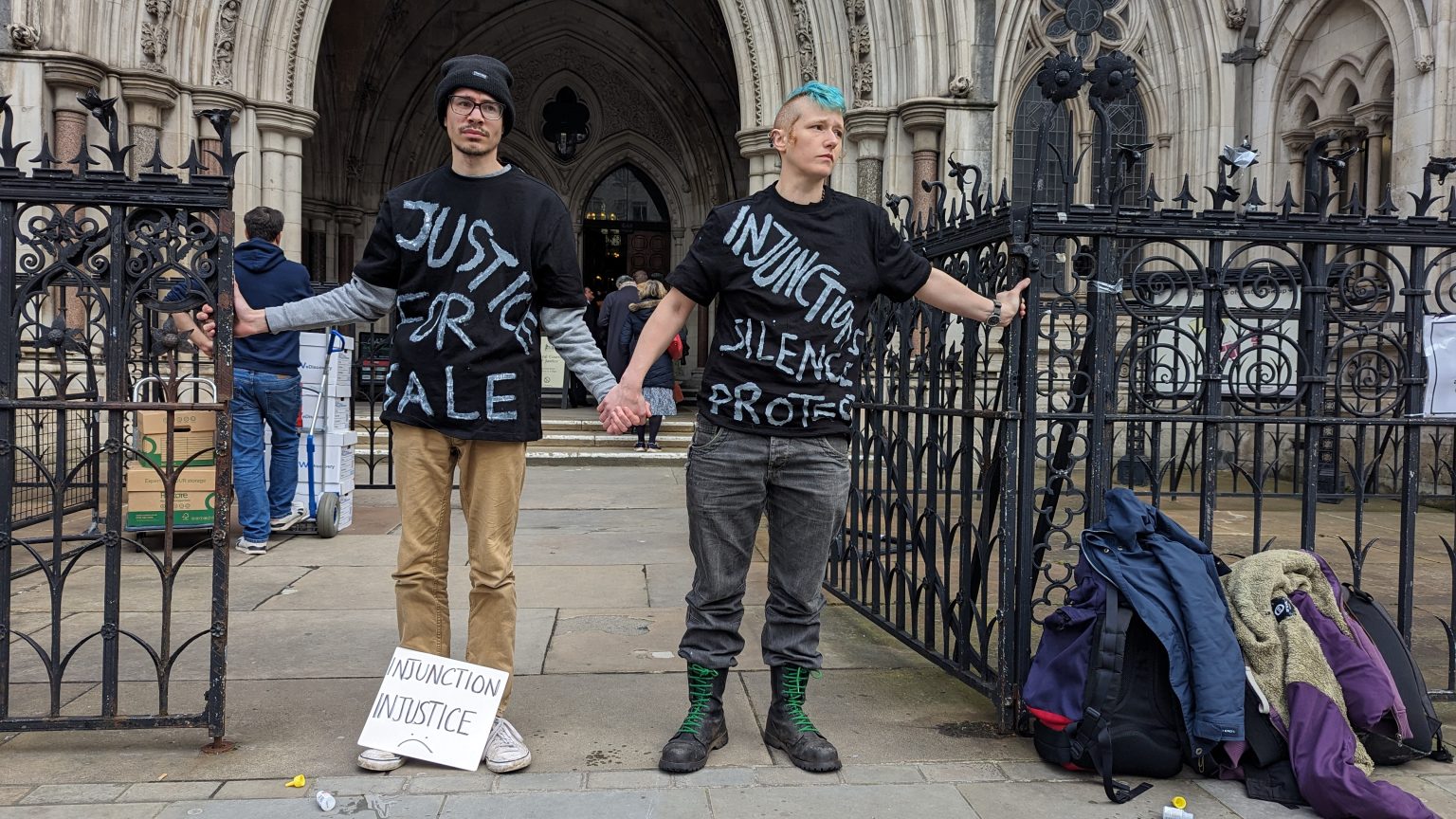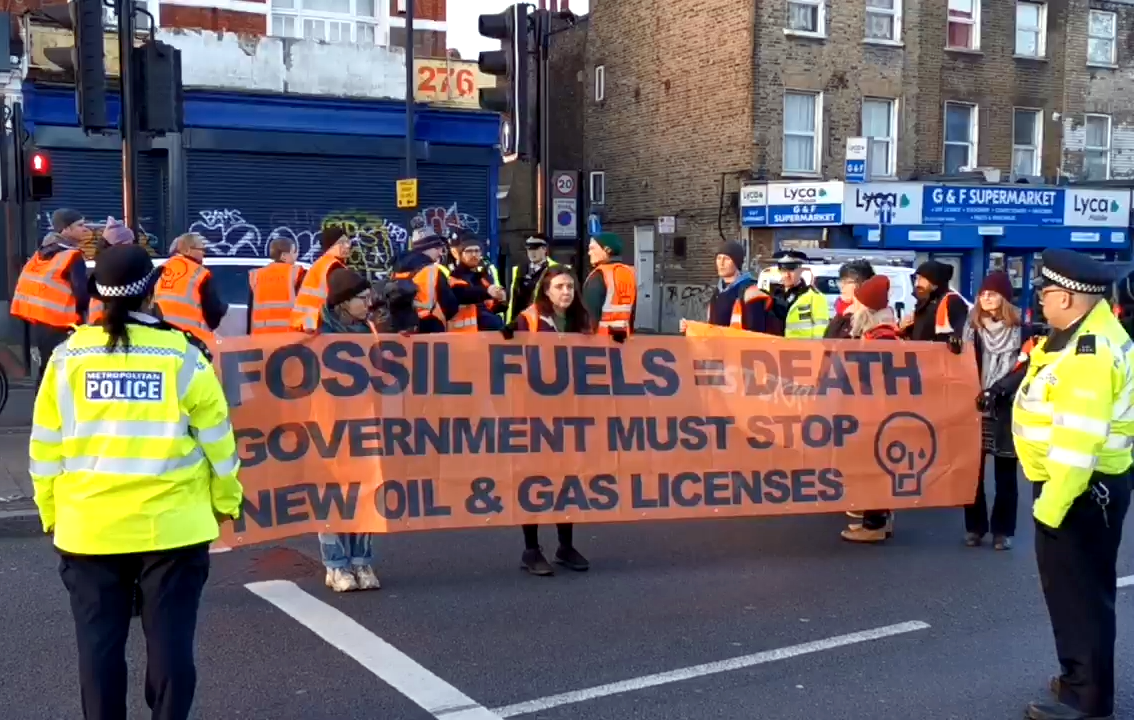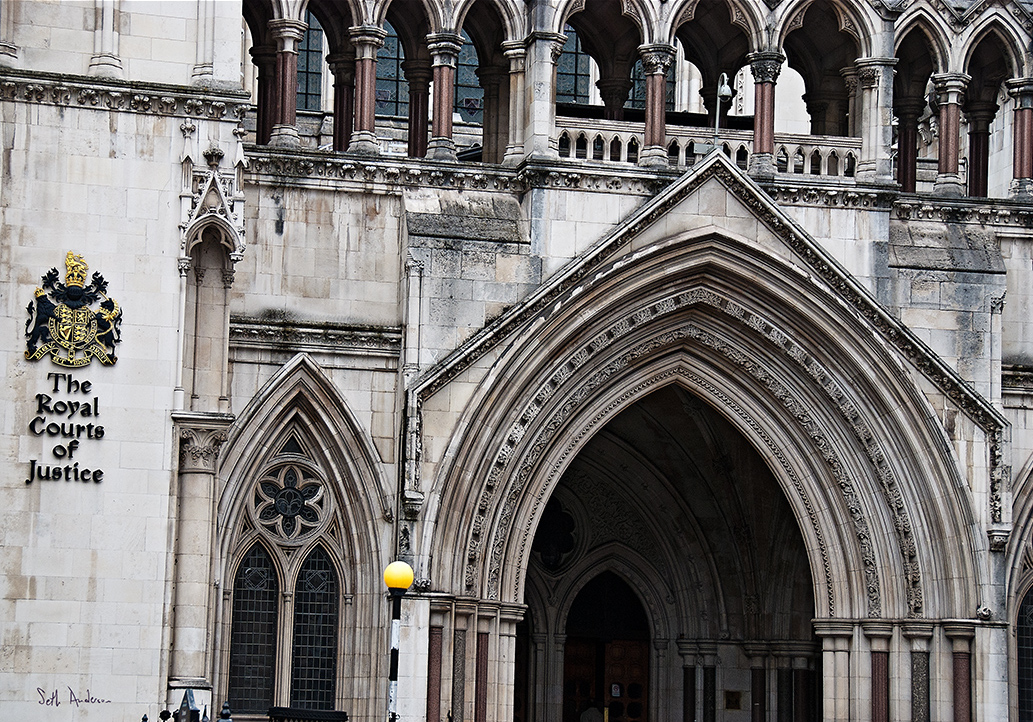Just Stop Oil supporters block the Royal Courts of Justice during injunction trial

Two Just Stop Oil supporters have blocked the entrance to the Royal Courts of Justice. They took action to highlight the injustice of private injunctions being used to silence peaceful dissent in the UK, and are demanding the government end all new oil, gas and coal projects.
At around 10:10 am yesterday, Tez Burns, 35, and Callum Goode, 24, glued themselves to the entrance gates of the Royal Courts of Justice. The action comes after eighteen Just Stop Oil supporters have appeared at the Royal Courts of Justice over the past three days, facing trial over an alleged breach of a civil injunction taken out by National Highways Ltd in 2022.
On Tuesday, eleven Just Stop Oil supporters signed an undertaking committing them to no further action. In addition, six Just Stop Oil supporters, who were previously named on an injunction taken out against Insulate Britain supporters, were not offered an undertaking. Five of these have accepted the breach and will be sentenced today. Both Callum and Tez have refused to accept the breach and have pushed for the case to be heard at trial, which is currently ongoing.
A Just Stop Oil spokesperson said:
“Injunctions are private laws bought by corporations and government agencies. Typically they are used to protect someone from harassment, and are intended as a remedy not a punishment, but since the Insulate Britain campaign began, they’ve been increasingly used by the State and private companies to silence dissent by climate resistors. They are being used to circumnavigate the usual rule of law, where defendants appear before a high court judge with no jury. They potentially expose defendants to ‘double jeopardy’ for the same action, where they may also be facing criminal charges. Typically injunctions result in astronomical legal costs which are applied to people named on an injunction, even if they have never broken it. Where defendants are offered an undertaking- which commits them to a certain action- and they choose to sign it, all costs are then divided equally amongst any remaining defendants. This is a divide and rule tactic being used to silence those speaking out about the criminality of politicians and business leaders.”
Callum Goode 24, a maths graduate from Ashbourne, said:
“I’m being taken to court for allegedly breaking a court order I wasn’t even aware of, granted just two days before I climbed a gantry over the M25 to demand an end to new oil and gas licences. Hidden away, a judge with no jury will be deciding what happens to me. I’ve already spent 11 weeks in prison without trial for the action I took that day and I will also face a criminal charge- this double jeopardy is obvious injustice.
For this stand I’m likely to face tens of thousands of pounds in costs and potentially prison and I’m only one of hundreds facing the injustice of these injunctions. In court, I have told the truth as I have sworn to – that resisting a government that is knowingly taking actions that are killing countless people and risking hundreds of millions more lives, is the only moral option.”
The use of injunctions to silence climate defenders has received international condemnation. Michel Forst, the United Nations Special Rapporteur on Environmental Defenders under the Aarhus Convention recently said: “I am deeply troubled at the use of civil injunctions to ban protest in certain areas, including on public roadways.” adding: “The repression that environmental activists who use peaceful civil disobedience are currently facing in Europe is a major threat to democracy and human rights.”
“The environmental emergency that we are collectively facing, and that scientists have been documenting for decades, cannot be addressed if those raising the alarm and demanding action are criminalised for it. The only legitimate response to peaceful environmental activism and civil disobedience at this point is that the authorities, the media, and the public realise how essential it is for us all to listen to what environmental defenders have to say.”



